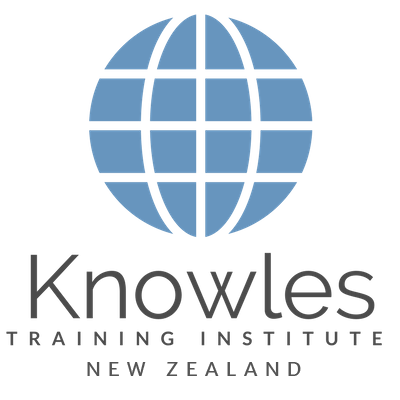Employee Engagement Training Course in New Zealand
Our corporate training course is also available in Auckland, Wellington, Christchurch, Hamilton, Tauranga, Napier-Hastings, Dunedin, Palmerston North, Nelson, Rotorua, New Plymouth, Whangarei, Invercargill, Wanganui, Gisborne, Lower Hutt, Upper Hutt, Porirua, Waitakere, Manukau, North Shore, Hastings, Levin, Timaru, Papakura, Pukekohe East, Taupo, Masterton, Levin, Tokoroa, Queenstown, Wanaka, Kaikoura, Paihia (Bay of Islands), Franz Josef, Milford Sound, Akaroa, Arrowtown, Coromandel Town.
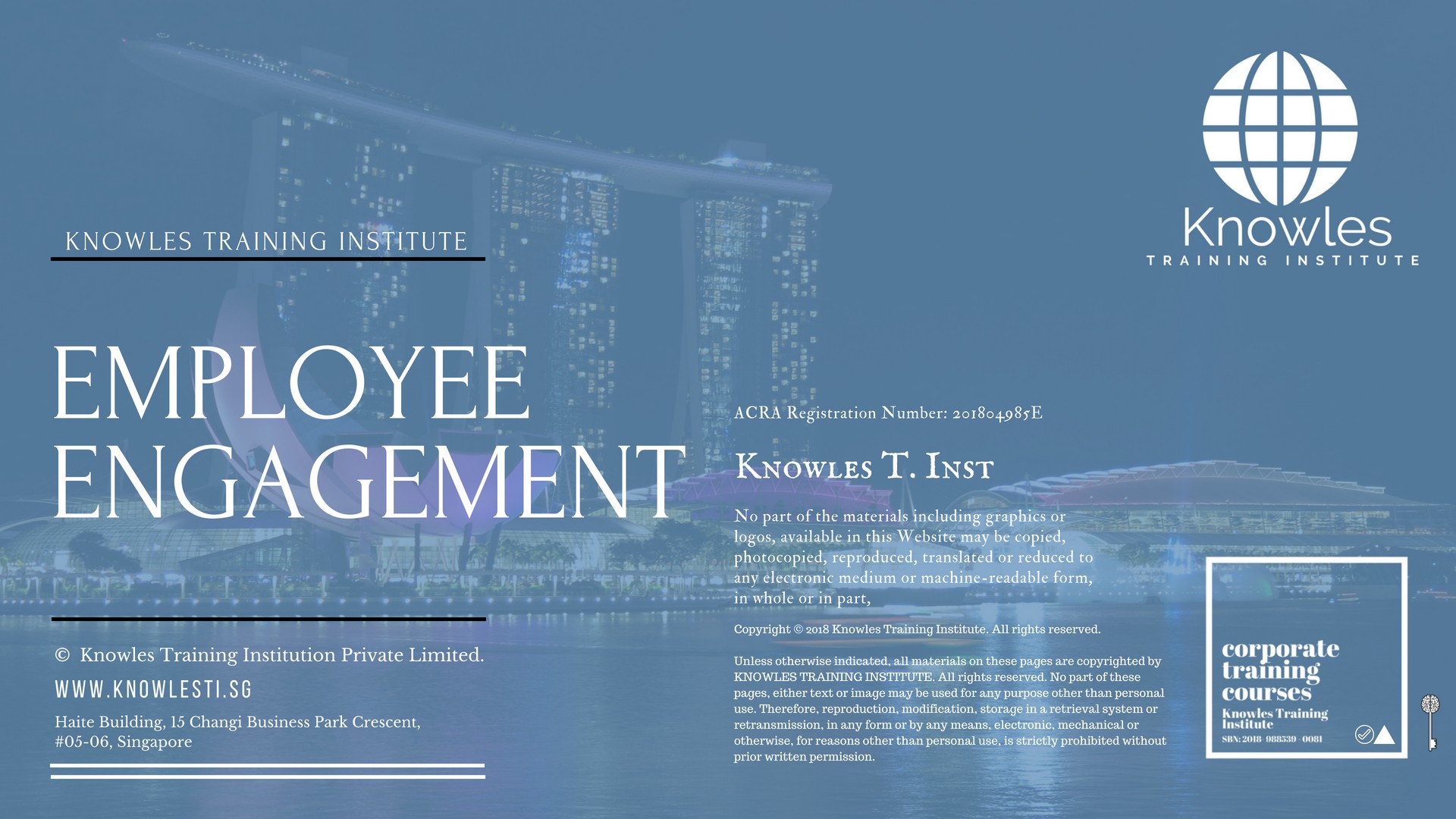
About This Employee Engagement Training Course in New Zealand
Employee Engagement Course in New Zealand
Having engaged employees course in New Zealand in the workplace is a sign of how employees are connected to a company. They understand and uphold the goals and values of the company they work for and are committed to its success. Employee engagement can be achieved by creating a work environment that encourages the full potential of the employees.
Who Should Attend This Employee Engagement Course in New Zealand Workshop
This Employee Engagement Course in New Zealand workshop is ideal for anyone who would like to gain a strong grasp and improve their Employee Engagement.
All Staff Within An Organisation
Managers
Team Leaders
Executives
Assistants
Officers
Secretaries
Group Size For This Employee Engagement Training Program in New Zealand
The ideal group size for this Employee Engagement course in New Zealand is:
Minimum: 5 Participants
Maximum: 15 Participants
Course Duration For This Employee Engagement Skills Course in New Zealand
The duration of this Employee Engagement Course in New Zealand workshop is 2 full days. Knowles Training Institute New Zealand will also be able to contextualised this workshop according to different durations; 3 full days, 1 day, half day, 90 minutes and 60 minutes.
2 Full Days
9 a.m to 5 p.m
Employee Engagement Course in New Zealand Benefits
Below is the list of course benefits of our Employee Engagement course in New Zealand
- Learn what Employee engagement is
- Understand why employee engagement is important
- Be able to identify the factors that promotes employee engagement
- Envision how the company can grow through employee engagement
- Have the capability to create effective employee engagement strategies
- Learn the different ways to develop existing employee engagement acts in a company
- Sustain employee engagement in a company
- Acquire the knowledge to be able to identify employees that are engaged and those who are not
- See the errors of a failed employee engagement plan
- Do the math to calculate for the metrics in determining the strength of employee engagement in a company
- Obtain the skills on how to be a leader that motivates engagement
- Learn how to draft a sustainable employee engagement program in a company
Employee Engagement Course in New Zealand Objectives
Below is the list of course objectives of our Employee Engagement course in New Zealand
- Discuss what is Employee Engagement
- Identify the traits of an engaging employee
- Explain the factors that motivates employees to engage
- Present the reasons why employee engagement is needed in an organization
- List the effective strategies to achieve employee engagement
- Practice how to improve current employee engagement plans
- Describe the traits that a company that practice good employee engagement looks like
- Illustrate the ways how employees show their engagement
- List examples of failed employee engagements
- Present a method of how to calculate for employee engagement metrics
- Exemplify how leaders should motivate employees to engage
- Create a personal plan to achieve employee engagement and how to sustain it
Course Content For This Employee Engagement Training Course in New Zealand
Below is the list of course content of our Employee Engagement training course in New Zealand
- What is an employee engagement
- What does it mean to be an engaged employee
- What drives employee engagement
- Importance of employee engagement in an organization
- Effective employee engagement strategies
- Ways to improve employee engagement
- How to establish a culture of employee engagement
- How do employees show their engagement
- Failures of employee engagement
- Metrics used in assessment of employee engagement
- How employee engagement develop leadership
- Developing and sustaining employee engagement
Employee Engagement Course in New Zealand Value Added Materials
Each participant will receive the following materials for the Employee Engagement course in New Zealand
Employee Engagement Course in New Zealand Learner’s Guide
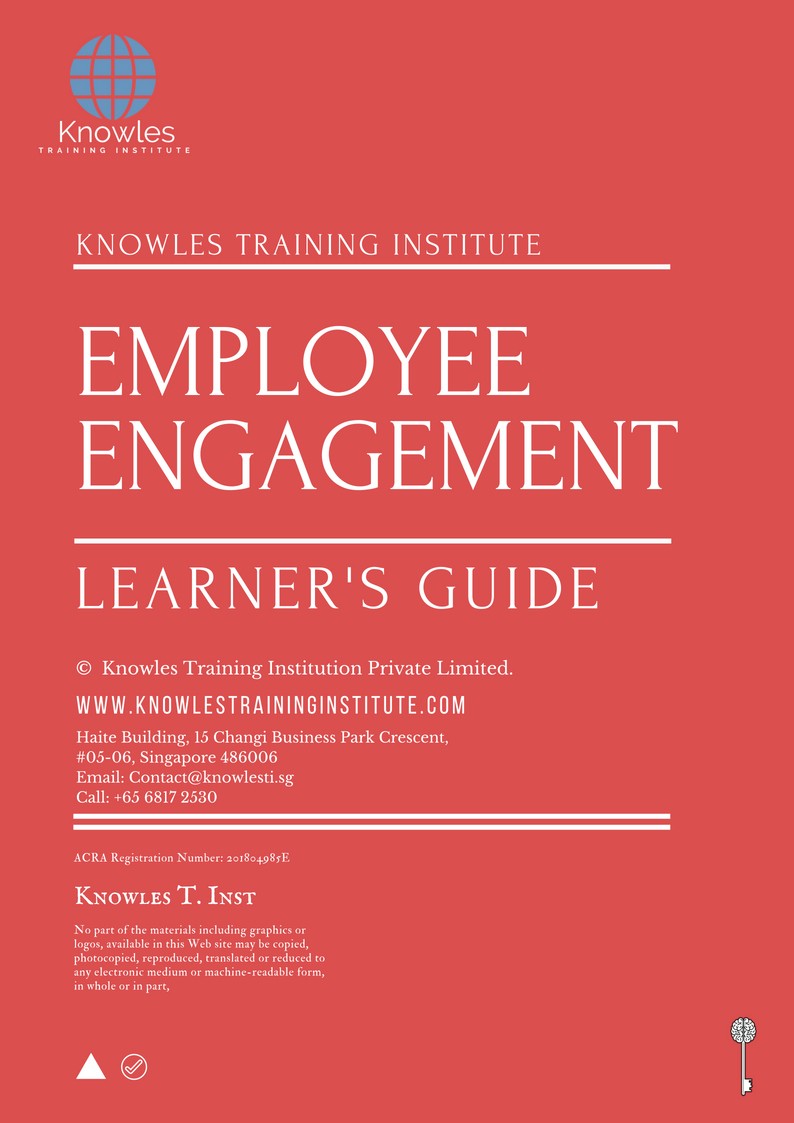
Employee Engagement Course in New Zealand Handouts
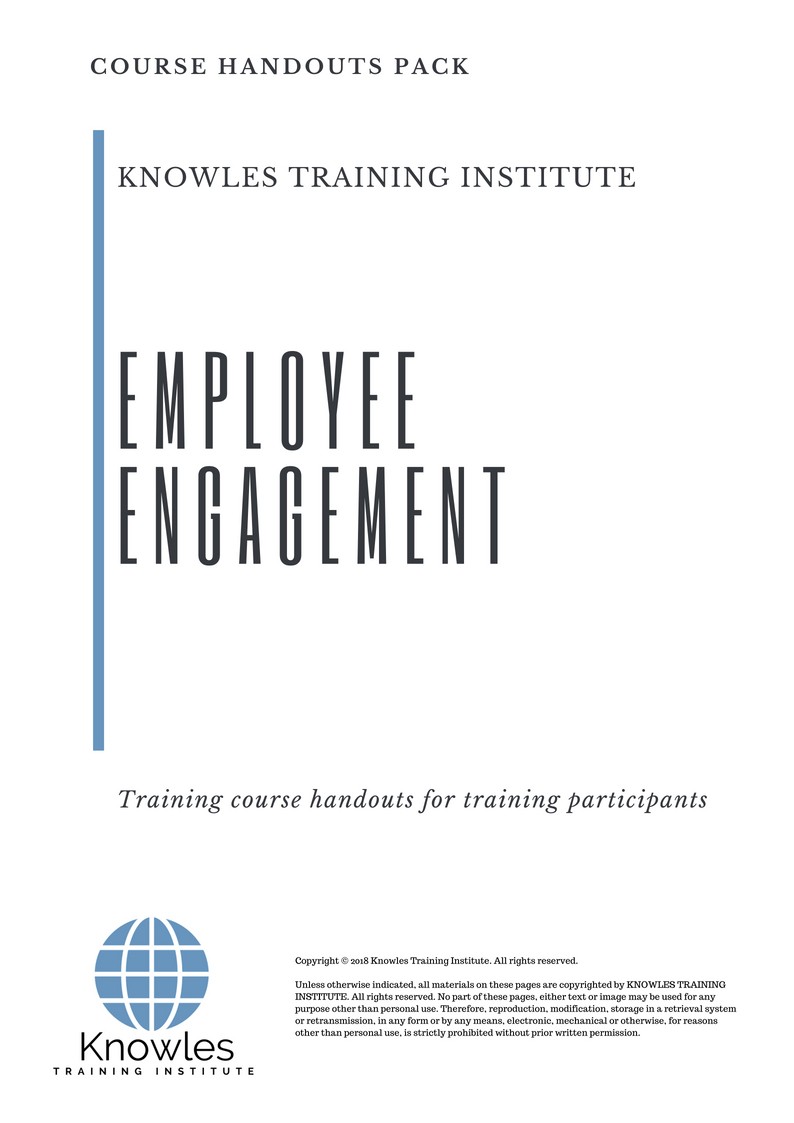
Employee Engagement Course in New Zealand PPT Slides Used During Course
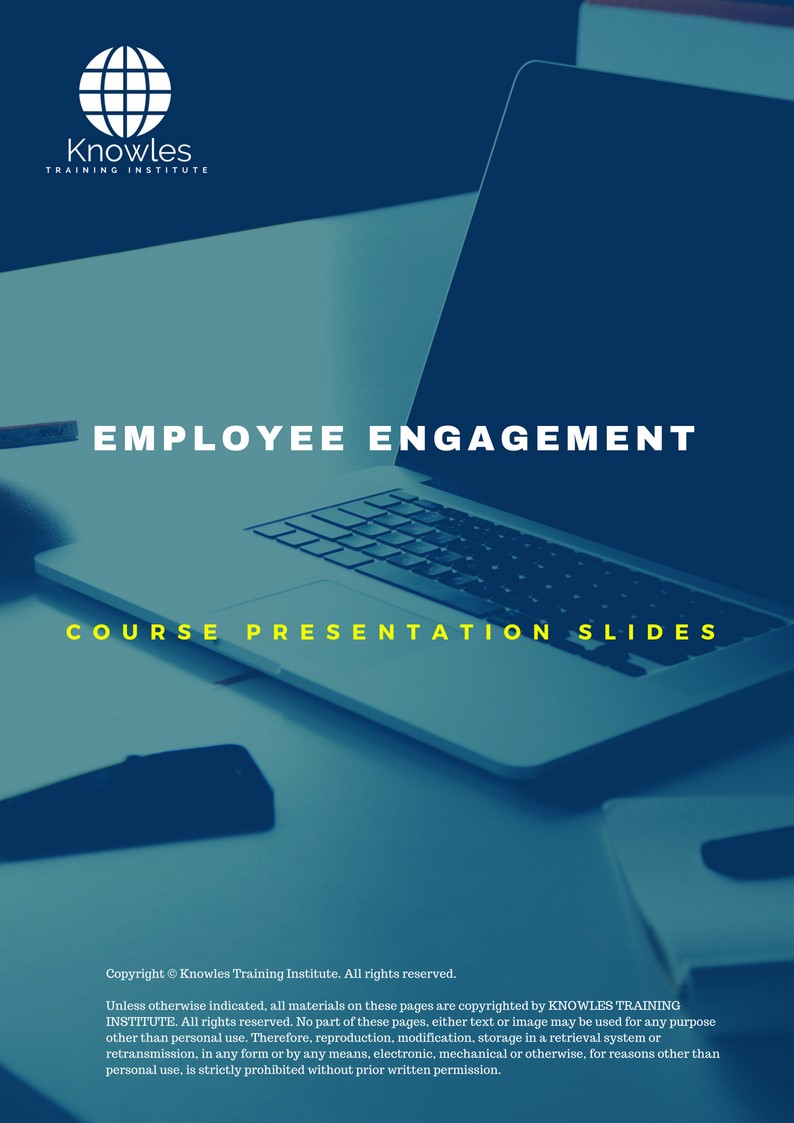
Employee Engagement Course in New Zealand Certification
Each course participant will receive a certification of training completion
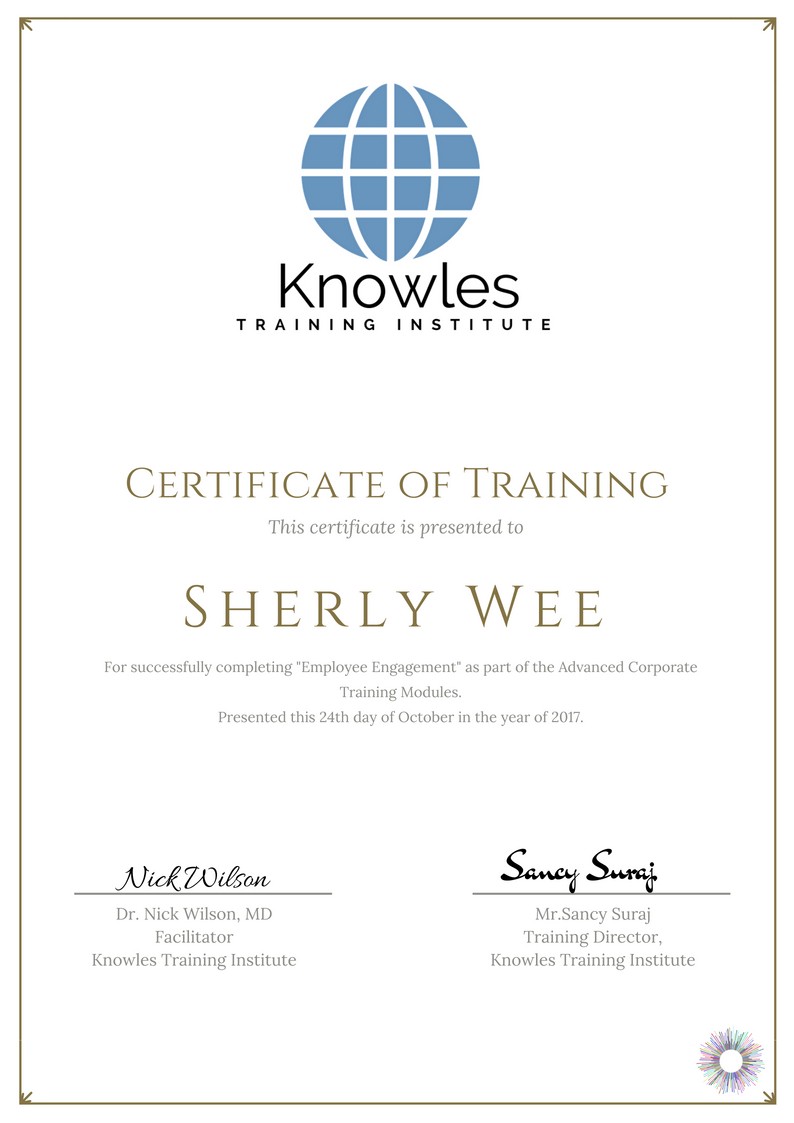
Course Fees For Employee Engagement Training Course In New Zealand
There are 4 pricing options available for this Employee Engagement training course in New Zealand. Course participants not in New Zealand may choose to sign up for our online Employee Engagement training course in New Zealand.
- USD 679.97 For a 60-minute Lunch Talk Session.
- USD 289.97 For a Half Day Course Per Participant.
- USD 439.97 For a 1 Day Course Per Participant.
- USD 589.97 For a 2 Day Course Per Participant.
Discounts available for more than 2 participants.
Upcoming Employee Engagement Training Course in New Zealand Schedule
Contact us for the latest Employee Engagement course in New Zealand schedules:
Email: contact@knowlesti.nz
Message:
Download Employee Engagement Course in New Zealand Brochure
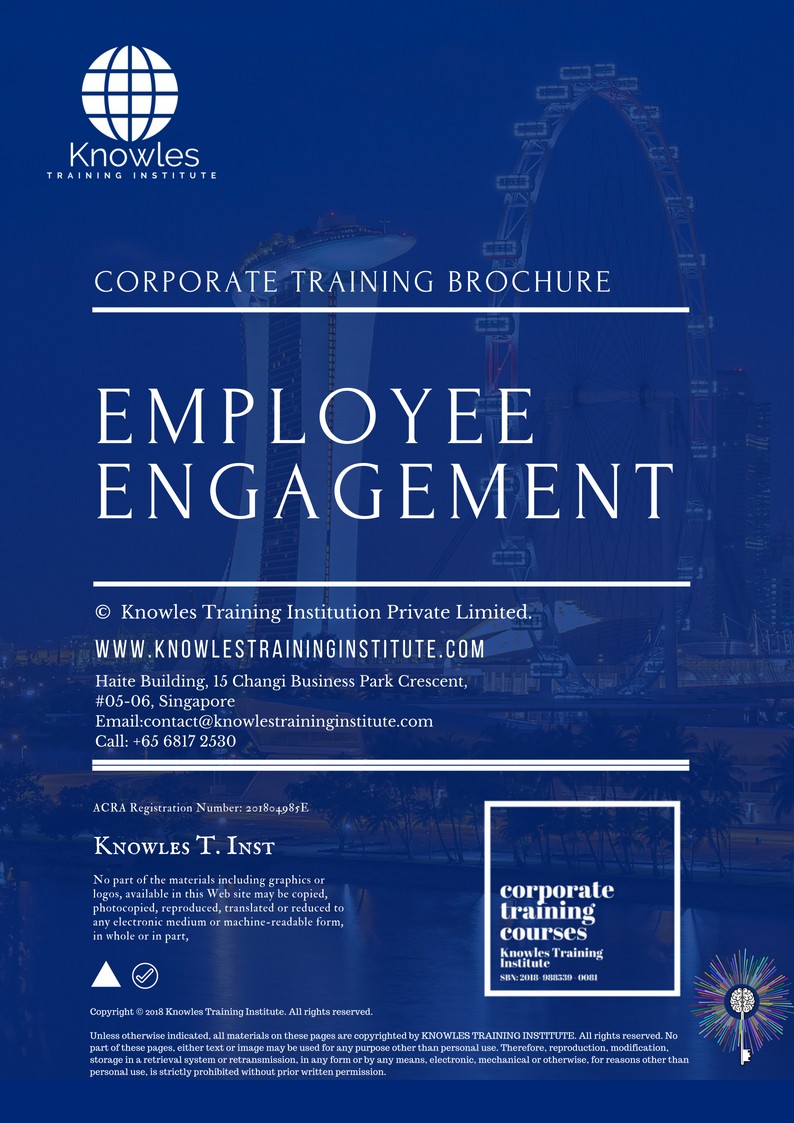
Request for this Employee Engagement course in New Zealand brochure. Fill up the short information below and we will send it to you right away!
Post Training Support: A vast majority of training does not have any effect beyond 120 days. To work, training has to have a strong pre- and post-training component. Post-training reinforcement helps individuals to recall the understanding and ask questions.
Blended Learning: Learning does not occur in the classroom. Virtually everybody prefers distinct ways of learning. Successful learning should have a multi-channel, multi-modal strategy.
- We Understand The Industry: We’ve got a profound comprehension of the business, business design, challenges, strategy and the that our participants are in and have designed the courseware to cater to their professional needs.
- Course Content: Knowles Training Institute’s material is relevant, of high quality and provide specific learning results. Participants will leave the training course feeling as they have gained a strong understanding and will also be in a position to execute what they have learned sensibly.
Course Development — The workshop modules follow a systematic and logical arrangement. This structure helps to ensure that the course material allows the facilitators to deliver the course in a logical arrangement. Consider the subjects as building bricks into learning, our facilitators slowly build towards a comprehensive picture of this entire topic.
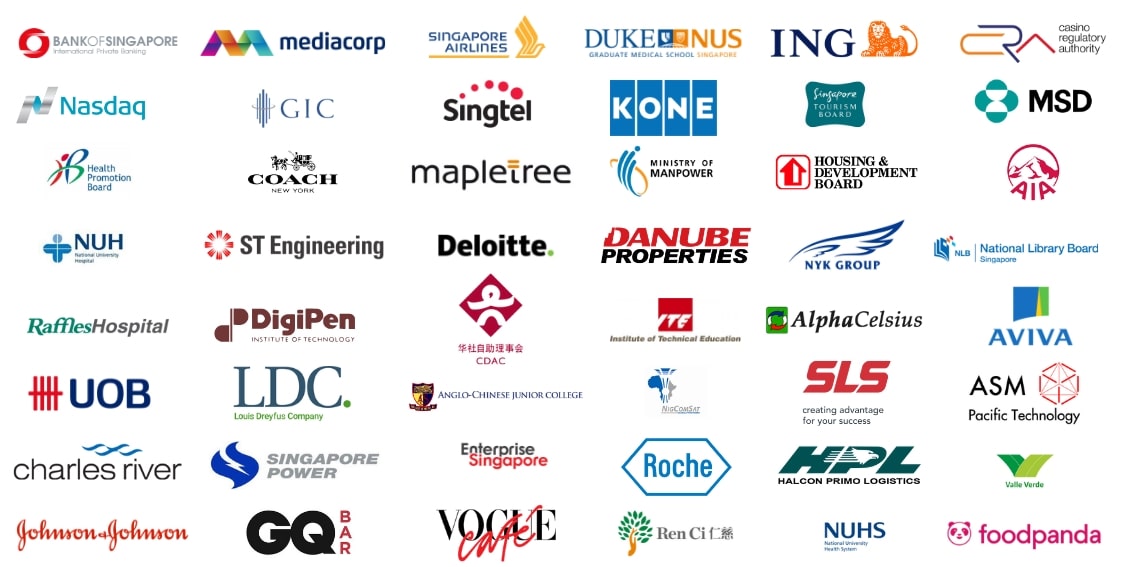

Course Enquiries
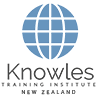
Fill up the form and we will get back to you in less than 1 working day.
Alternatively, give us a call to have one of our training consultants contact you. Our corporate training courses can be contextualized to meet your organization’s training needs. Leverage on our large pool of professional trainers and consultants for your organization’s training needs.
Email: contact@knowlesti.nz
We Guarantee 100% Privacy. We Respect Your Privacy. Your Information Will Never Be Shared.
